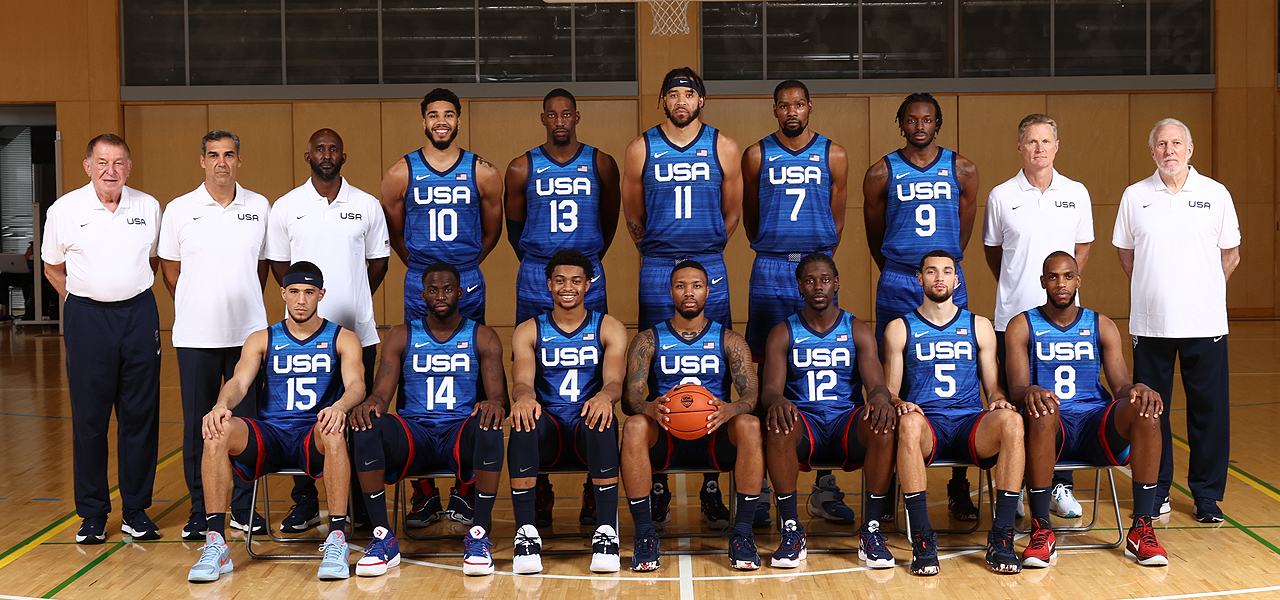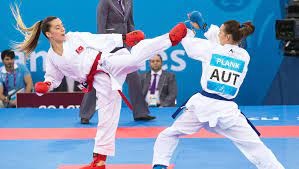Sports In Modern Olympic Games
The modern Olympic Games, first held in Athens in 1896, have become the pinnacle of athletic achievement for athletes from around the world. Over the years, the number of sports contested at the Olympics has increased, reflecting the changing interests and capabilities of athletes. In this article, we will take a comprehensive look at the sports contested at the modern Olympic Games, their history, and their significance.
Evolution Of Sports In Modern Olympic Games
When the modern Olympic Games were first held in 1896, only 9 sports were contested: athletics, cycling, fencing, gymnastics, shooting, swimming, tennis, weightlifting, and wrestling. Over the years, the number of sports has increased dramatically, with the most recent Olympic Games in Tokyo featuring 33 sports. The addition of new sports has often been controversial, with debates about the suitability of certain sports and the political motivations behind their inclusion.
The evolution of the Olympic sports program reflects broader trends in society, such as the increasing popularity of team sports, the rise of women's sports, and the growth of extreme sports. The International Olympic Committee (IOC) has sought to balance tradition with innovation, ensuring that the sports contested at the Olympics remain relevant to a changing world.
The Core Sports
While the number of sports contested at the Olympics has grown over the years, there are certain sports that are considered the core of the Olympic program. These sports are typically the most popular and widely contested, and include:
Athletics
Athletics, also known as track and field, has been contested at every modern Olympic Games. It is the largest sport at the Olympics, with over 200 events in a variety of disciplines, including sprints, hurdles, middle and long-distance running, jumping, and throwing.
Swimming
Swimming is another core Olympic sport, with a range of events in freestyle, backstroke, breaststroke, butterfly, and medley. Swimming has been contested at every modern Olympic Games since 1896.
Gymnastics
Gymnastics is a highly popular Olympic sport, with events in artistic and rhythmic gymnastics for both men and women. Artistic gymnastics includes events such as the floor exercise, pommel horse, and vault, while rhythmic gymnastics involves dance and manipulation of apparatus such as hoops and ribbons.
Cycling
Cycling is another sport that has been contested at every modern Olympic Games. It includes a range of events, including road cycling, track cycling, and BMX.
Wrestling
Wrestling is a traditional Olympic sport, with events in freestyle and Greco-Roman wrestling. It has been contested at every modern Olympic Games, except for the 1900 Games in Paris.
Basketball
Basketball has been a part of the modern Olympic Games since 1936, when it was first introduced as a demonstration sport. It became an official Olympic sport in 1936, and has since become one of the most popular events at the Games.
The United States has been a dominant force in Olympic basketball, winning a total of 15 gold medals, one silver medal, and two bronze medals. The U.S. men's team has won 14 of those gold medals, including seven consecutive golds from 1936 to 1968.
Overall, basketball has become an integral part of the modern Olympic Games, and the United States has played a major role in the success and popularity of the sport at the Games. The U.S. men's team with stars like Curry, Thompsonor James will no doubt continue to be among the favorites for Olympic gold in the years to come.
Football (Soccer)
Football, also known as soccer, is another hugely popular team sport that has been contested at the Olympics since 1900. The Olympic football tournament features under-23 teams, with each team allowed three overage players.
Volleyball
Volleyball is a team sport that has been contested at the Olympics since 1964. It includes both indoor and beach volleyball events, with beach volleyball being added to the Olympic program in 1996.
Emerging Sports
In addition to the core sports, the Olympics also feature a number of emerging sports that are relatively new to the Olympic program. These sports often reflect changing trends in society and the interests of younger generations. Some of the most recent emerging sports include:in street and park skateboarding, with competitors judged on their technical skill, creativity, and style.
Sport Climbing
Sport climbing is another new addition to the Olympic program, first contested in the 2020 Tokyo Games. It includes three disciplines: speed climbing, bouldering, and lead climbing, with athletes competing in all three to determine an overall winner.
Surfing
Surfing is another sport that made its Olympic debut in Tokyo. It includes both men's and women's events, with surfers judged on their performance in riding waves.
Karate
Karate was added to the Olympic program for the first time in Tokyo, with athletes competing in kata (demonstration) and kumite (sparring) events.
Skateboarding
Skateboarding made its Olympic debut at the 2020 Tokyo Games. It includes events in street and park skateboarding, with competitors judged on their technical skill, creativity, and style.
Controversies Surrounding Olympic Sports
The inclusion of new sports in the Olympic programis often controversial, with debates about the suitability of certain sports and the political motivations behind their inclusion. For example, the inclusion of skateboarding and surfing in the 2020 Tokyo Games was criticized by some who felt that these sports were not true Olympic disciplines.
There have also been controversies surrounding the exclusion of certain sports from the Olympic program. For example, wrestling was briefly removed from the Olympic program in 2013, sparking outrage among wrestling fans and prompting the IOC to reinstate the sport.
The Fight Against Doping
In addition to controversies surrounding the inclusion and exclusion of certain sports, the modern Olympic Games have also been subject to criticism regarding issues such as doping and corruption. The use of performance-enhancing drugs in sport has been a persistent problem, with numerous high-profile cases of athletes being stripped of medals or banned from competition.
The International Olympic Committee (IOC) has taken steps to combat doping, including establishing the World Anti-Doping Agency (WADA) in 1999 and implementing a rigorous testing program. Athletes are subject to both in-competition and out-of-competition testing, with penalties for those found to be using banned substances.
Despite these measures, doping remains a persistent problem in sport. The 2016 Rio Games, for example, saw numerous high-profile cases of athletes being banned or facing allegations of doping, including Russian athletes who were implicated in a state-sponsored doping program.
Corruption Scandals
In addition to the issue of doping, the modern Olympic Games have also been plagued by corruption scandals. In 1998, it was revealed that members of the IOC had accepted bribes in exchange for awarding the 2002 Winter Olympics to Salt Lake City, Utah.
Since then, there have been numerous other scandals involving corruption within the IOC and host cities. The 2014 Winter Olympics in Sochi, Russia, were the subject of controversy regarding allegations of corruption and cost overruns, while the 2016 Rio Games were also plagued by concerns over corruption and political instability.
The Future Of The Olympic Games
Despite these challenges, the Olympic Games remain one of the most highly anticipated and watched events in the world. The Games bring together athletes from around the world, providing a platform for them to showcase their skills and compete at the highest level.
Looking to the future, the IOC has made efforts to make the Olympic Games more sustainable and financially viable. The 2024 Paris Games, for example, will feature a number of sustainable initiatives, including the use of renewable energy sources and the incorporation of environmentally friendly materials in the construction of Olympic venues.
Overall, while the modern Olympic Games have faced a number of challenges over the years, they remain a symbol of international unity and athletic excellence. The Games provide a platform for athletes from around the world to showcase their talents, and inspire millions of people to pursue their own dreams and aspirations.
Sustainability And Sports
In addition to sustainability initiatives, the IOC has also made efforts to make the Olympic Games more accessible to a wider audience. In recent years, the IOC has made significant investments in digital technology, enabling fans to watch and interact with the Games online and through social media.
The IOC has also made efforts to increase gender equality in sport, with a goal of achieving full gender parity at the Olympic Games. The Tokyo Games saw an equal number of men's and women's events, and the IOC has committed to continuing this trend in future Games.
Another major initiative of the IOC is the Olympic Agenda 2020, a strategic roadmap for the future of the Olympic Movement. The agenda includes a number of key priorities, including sustainability, good governance, and the promotion of Olympic values.
People Also Ask
Which Are The Modern Olympic Games?
The modern Olympic Games refer to the Olympic Games that have taken place since the inaugural Games in Athens, Greece in 1896. These Games are distinct from the ancient Olympic Games that were held in Greece from 776 BC to 393 AD.
What Are The 5 Modern Olympic Sports?
There are actually more than 5 modern Olympic sports, as the number of sports and events included in the Games has varied over time. However, if we were to identify five of the most popular and enduring sports in the modern Olympic program, they would likely be: athletics (track and field), swimming, gymnastics, cycling, and basketball.
What Is Modern Olympic Game Elaborate?
The modern Olympic Games are a quadrennial international sporting event that brings together athletes from around the world to compete in a range of individual and team sports. The Games are governed by the International Olympic Committee (IOC) and are held in different cities around the world every four years, alternating between summer and winter editions.
Conclusion
In conclusion, the modern Olympic Gameshave played an important role in promoting international unity and athletic excellence. From its humble beginnings in ancient Greece to its present-day incarnation, the Games have evolved to become one of the most widely watched and celebrated events in the world.
While the Games have faced numerous challenges over the years, including doping scandals, corruption, and the COVID-19 pandemic, the IOC has demonstrated its commitment to addressing these issues and ensuring that the Olympic Games remain relevant and sustainable in the years to come.



